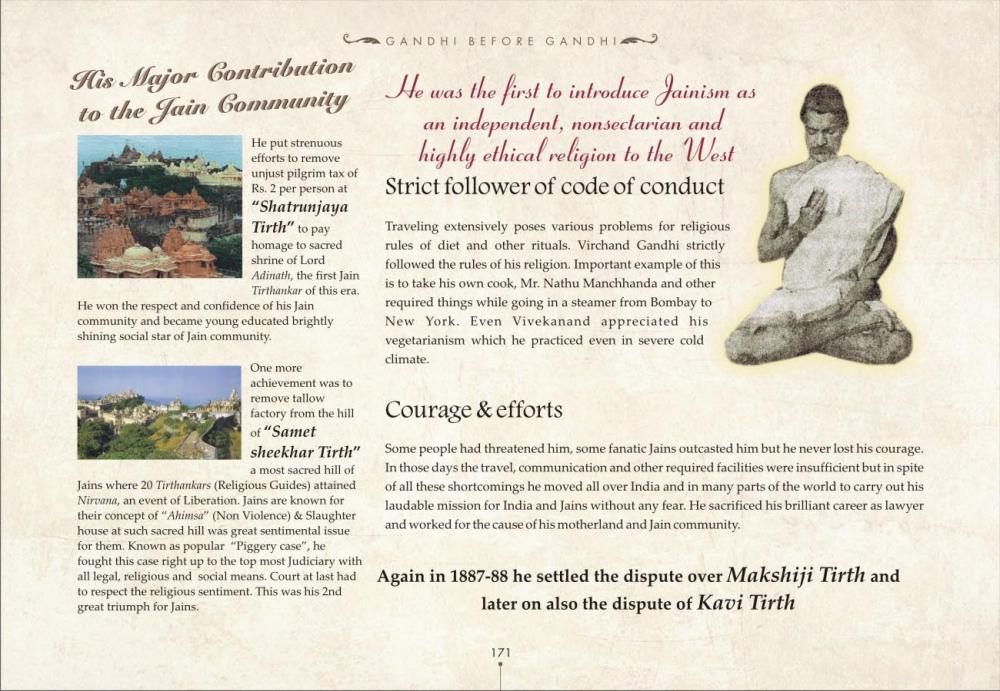________________
GANDHI BEFORE GANDHI
His Major Contribution to the Jain Community
He was the first to introduce Jainism as
an independent, nonsectarian and
highly ethical religion to the West Strict follower of code of conduct
He put strenuous efforts to remove unjust pilgrim tax of Rs. 2 per person at "Shatrunjaya Tirth" to pay homage to sacred shrine of Lord Adinath, the first Jain
Tirthankar of this era. He won the respect and confidence of his Jain community and became young educated brightly shining social star of Jain community.
Traveling extensively poses various problems for religious rules of diet and other rituals. Virchand Gandhi strictly followed the rules of his religion. Important example of this is to take his own cook, Mr. Nathu Manchhanda and other required things while going in a steamer from Bombay to New York. Even Vivekanand appreciated his vegetarianism which he practiced even in severe cold climate.
Courage & efforts
One more achievement was to remove tallow factory from the hill of "Samet sheekhar Tirth"
a most sacred hill of Jains where 20 Tirthartkars (Religious Guides) attained Nirvana, an event of Liberation. Jains are known for their concept of "Ahimsa" (Non Violence) & Slaughter house at such sacred hill was great sentimental issue for them. Known as popular "Piggery case", he fought this case right up to the top most Judiciary with all legal, religious and social means. Court at last had to respect the religious sentiment. This was his 2nd great triumph for Jains.
Some people had threatened him, some fanatic Jains outcasted him but he never lost his courage. In those days the travel, communication and other required facilities were insufficient but in spite of all these shortcomings he moved all over India and in many parts of the world to carry out his laudable mission for India and Jains without any fear. He sacrificed his brilliant career as lawyer and worked for the cause of his motherland and Jain community
Again in 1887-88 he settled the dispute over Makshiji Tirth and
later on also the dispute of Kavi Tirth
171




